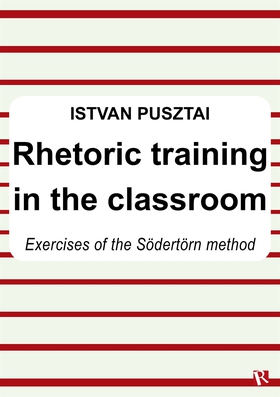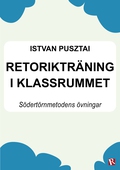
Lägg till önskelistan
Gratis smakprov
- Spara till biblioteket
- Läs smakprov
Rhetoric training in the classroom : Exercises of the Södertörn method e-bok
Pris
209 kr
Rhetoric is about the imprint of thinking in language and the imprint of language in thinking. A real understanding of rhetorical theory can only be obtained through the person's own conscious re-creation of the phenomena that other rhetoricians have previously observed, systematized and coded. Older training methods in rhetoric have mainly used the copying of other people's speeches and imitation of prominent speakers. The re-creation in this training method takes place mainly by the partici...
E-Bok
209 kr
Pris
Förlag
Recito Förlag
Utgiven
10 Mars 2021
Genrer
Media & Kommunikation, Språk & Ordböcker, Fackböcker
Språk
Swedish
Format
epub
Kopieringsskydd
Vattenmärkt
ISBN
9789177655312
Rhetoric is about the imprint of thinking in language and the imprint of language in thinking. A real understanding of rhetorical theory can only be obtained through the person's own conscious re-creation of the phenomena that other rhetoricians have previously observed, systematized and coded. Older training methods in rhetoric have mainly used the copying of other people's speeches and imitation of prominent speakers. The re-creation in this training method takes place mainly by the participants combining the systems, models and quality requirements of modern rhetorical theory with their own creative ideas, knowledge and experiences.
The book contains 292 exercises that are intended to be used in classrooms, regardless of whether the participants are young or adults. The training is presented in three chapters. In the first, the pedagogical format of the method is described with suggestions for possible pedagogical arrangements in the execution of the exercises. This applies to such details as which texts are used, how the work is done in the groups and how to give feedback.
The second chapter contains preparatory exercises. They are intended for training basic skills such as acceptable speech flow, association ability, social role-taking and adopting alternative attitudes in speech. The third chapter contains specifically directed rhetorical exercises that relate to the speech situation (intellectio), argumentation (inventio), disposition (dispositio), language adaptation (elocutio), memorization (memoria) and live performance (actio).






